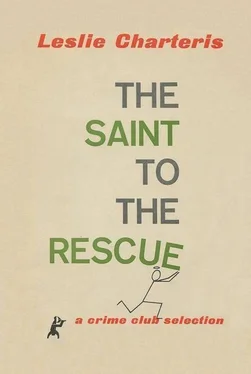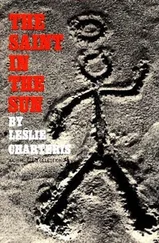Again he was too wise to begin by tussling with giants, but there were plenty of pygmies who could be taken for an impressive total poundage. The beauty of the stamp scheme was that it was not limited to any type of sale or service: theoretically, every single shop in every town and village could use them to attract new customers or keep old ones. Yet it was still true that in spite of the wide spread of the craze a majority of smaller enterprises had not succumbed to it, feeling that their modest business did not need or could not afford such promotion. It was in these small tradesmen that Sholto saw his market, and the smaller they were the more likely they were to succumb to the kind of salesmanship in which he specialized, which offered the cogent inducements of freedom from broken windows, slashed tires, stink bombs, and even personal injury.
Thus with the encouragement of some property damage and a few salutary beatings, Dibs Sholto’s gaudily colored Double Dividend Stamps throve and spread over the southeast corner of the country until they were as familiar as any other brand to the housewives of five states, most of whom had no notion whatever of how some of the merchants they dealt with had been persuaded to feature them. Being, unlike a barefaced protection racket, an ostensibly legitimate enterprise, the Double Dividend organization managed to escape the monopolistic attention of the criminal hierarchy, and was able to handle local complaints at the county level: there were surprisingly few of these, for Sholto’s small sales force of goons were trained to select the prospects most likely to be terrorized. It was Double Dividend’s own successful expansion which had brought the first serious trouble on itself. A Congressional Committee nosing into the trading stamp business in general had heard some evidence, an Attorney General had been prodded to take action, and Sholto had found himself on trial in Washington on the federal charges from which it had taken all Carlton Rood’s genius to extricate him.
But now that that briefly disconcerting obstacle had been disposed of, Dibs Sholto could see nothing to stop him enlarging his stamp system into a nation-wide network from which the dividends to himself would be not double but tenfold.
“Next time, the big boys won’t tell me — they’ll ask me,” he said to himself. “And they’ll make the deal I want. I’m on top of something that’s all mine, and nobody in the world has a thing on me.”
In this mood of resurgent arrogance after a fright which had shaken him more than he would ever admit now to anyone, he was discussing plans for the future with two of his chief lieutenants in the stately Colonial mansion north of the city of Atlanta which he had made his residence, when the white-haired Negro butler who was part of the expensive scenery announced an uninvited visitor.
“Who the hell is Sam Temple?” Sholto wanted to know.
Since no one could tell him, he sent one of his aides to find out. In a few minutes the man came back with an answer.
“He’s a two-bit private eye, but he says he ain’t here to ask questions — he’s got something to sell.”
Simon Templar never needed such crude accessories as a false beard to create a character, when he thought there was little danger of being recognized by his features. Merely by plastering his hair down with odorous oil, leaving his shoes unshined, and putting on the same soiled shirt that he had worn all the previous day, with the addition of a garish tie, a pair of loud and clashing socks, and a large diamond ring, all bought at the same dime store, and a little grime under his fingernails, he struck exactly the right note of seedy flashiness, and his manner as he entered Sholto’s presence was a convincing blend of obsequiousness and bluster.
“You won’t be sorry you saw me, Dibs. What I’ve got to sell is worth plenty, but I’m not going to make this a stick-up. I’d rather have you feeling you still owed me something than drive a hard bargain. Some other time I might want to ask you for a favor, if you know what I mean.”
“What’re you selling?” Sholto growled. He was a rather short rotund man with a snub-nosed face which he consciously tried to make less porcine by carrying his chin stuck out at an angle of permanent challenge, and the same crude aggressiveness was duplicated by his habitual voice. But his small shoe-button eyes were coldly calculating and as unemotional as marbles.
“It’s like this,” said the Saint. “A couple of nights ago I broke into a lawyer’s office in New York. I can tell you that because I know it won’t go any farther, after we get through talking. A client had hired me to find out if a certain thing was in his files, and you can’t be too fussy how you go about a job like that, if you know what I mean.”
“Who was this lawyer?”
“Mr Carlton Rood, Dibs — your own mouthpiece, according to what I read in the papers. That’s why I’m here now. But what I was looking for didn’t have anything to do with you. Only while I was looking, I found a recording machine in his desk which he can turn on if he wants to record a conversation. So I sat down and played the tape that was in it, in case it had anything on it about my client, or anything else that might be useful, if you know what I mean.”
“I know what you mean,” Sholto snarled. “So what did you hear?”
“There was this piece about you, Dibs. And I knew you’d be interested. So I found a spare spool of tape and made a copy of it — that was easy, machines like that being part of my business, if you know what I mean, and it didn’t tip him off like it would if I’d taken the original tape. But you know his voice, and I thought you’d like to hear it.”
Simon opened the small attaché case he had brought in with him, whose purpose now became apparent: with the lid off, it proved to be a portable tape recorder and playback. At a nod from Sholto, one of the lieutenants helped him to plug in the cord. There was no longer any problem of piquing the interest of the audience.
The Saint twiddled a couple of knobs, and suddenly the opulent accents of Carlton Rood boomed with startling realism from the instrument:
“ You say that Mrs Yarrow has already been operated on? ”
Then another voice, commonplace but incisive: “Almost a week ago. The operation was completely successful. In a few weeks she’ll have normal vision, and could be called to identify the man who squirted acid at her in Mobile.”
Rood’s florid tones again: “ But that case was thrown out twelve years ago. ”
“Sholto was never tried for shooting the husband. And there’s no statute of limitations on murder.”
“But what extraordinary lengths to go to — to revive an ancient case like that—”
“The Senator’s determined to get Sholto. And several other big scalps. He figures he needs them for his next election campaign. He’s paying for all this out of his own pocket, and he can afford to.”
“Indeed. But why are you telling me this, Mr Simons?”
“The Senator is a practical man. In politics, if you can’t lick ’em, you join ’em — within limits, of course. The Senator would rather have you on his side than have to fight you. You know how ambitious he is, and he wants this very badly. Here’s what I’m authorized to offer. Three hundred thousand dollars cash for all the information and lead you can supply, which of course will never be attributed to you — and it can be handled so as to make it tax free. And a Federal judgeship, which will give you a distinguished peak to retire from in a few years and a perfect out from having to turn down defending your old clients.”
The Saint gave a quick twist of one finger and thumb, and the sound stopped abruptly.
Читать дальше












